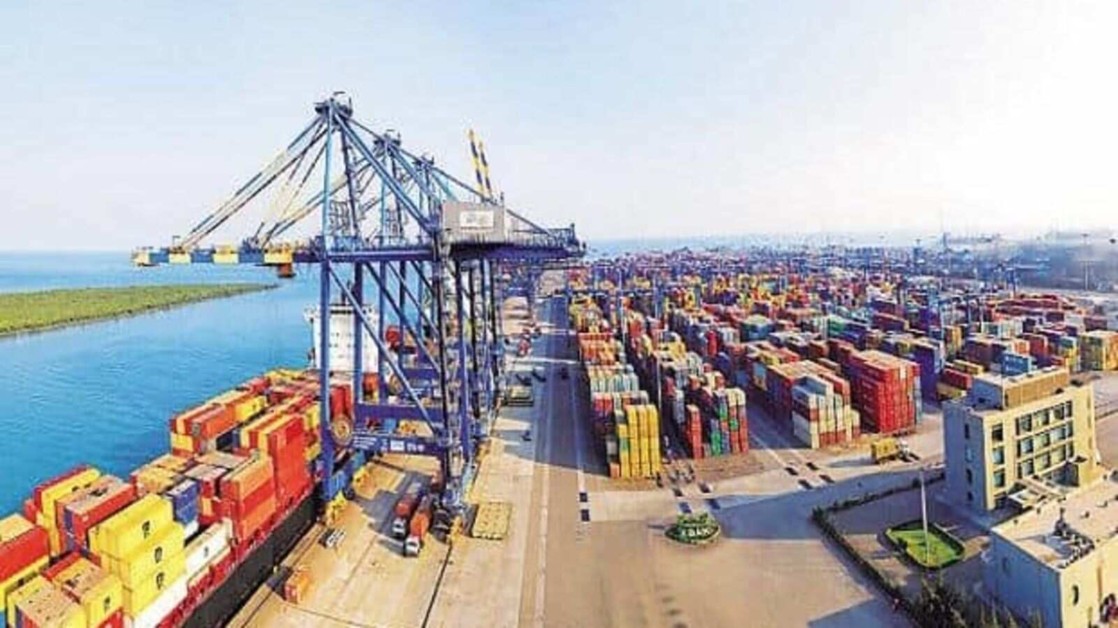Adani Ports and Special Economic Zone Ltd (APSEZ), said its “inorganic” strategy for buying ports will be extended to acquiring companies and services in the transport utility space as India’s biggest private port operator seeks to become the world’s top transport utility by 2025 together with a target to grow cargo volumes to 1 billion tonnes by 2030 from the 339.2 million tonnes (mt) in FY23.
The ports unit of the diversified Adani Group said its investments outside India, henceforth, will be in “operational ports and with a limited equity exposure” and in this endeavour it will tie up with a “strong local partner with financial skin in the game”.
By 2030, APSEZ aims to become the world’s largest port company.
The 12 ports/terminals run by APSEZ currently has the capacity to handle 580 mt of cargo a year.
“At APSEZ, we will extend our inorganic approach for port acquisition to the acquisition of companies and services in the transport utility space,” the company said in its Annual Report for FY23, noting that there will be “sustained focus on acquisitions at a deep discount value”.
“We have extended from Indian ports to investments in Haifa (Israel) and Colombo (container terminal) with the objective to provide a global transport utility solution,” the company said, adding that it is exploring global opportunities with a special focus on Asia, Africa, and other markets.
Karan Adani, Chief Executive Officer, and Whole-Time Director, APSEZ, outlined three “distinctive areas” for deepening the robustness of its business model.
One, APSEZ will develop the industrial hinterland across some of its ports by working closely with the state governments. This will catalyse industrial development and assure port volumes for the company for years to come, he said.
APSEZ has created a land bank of more than 12,000 hectares to attract industry.
Two, APSEZ will continue to evolve from port intermediation to doorstep delivery with a larger share of a customer’s logistics spending leading to annuity incomes.
“Our approach is not just ‘If the customer grows, we grow’; our objective is to create a competitive proposition that makes our customers more competitive and grow faster, playing the role of a catalyst and beneficiary,” Karan Adani revealed.
Three, APSEZ will gradually build port interests outside India.
“We acquired a stake in Haifa Port and are developing a terminal in Colombo Port. Driven by our risk management strategy, the investments outside India are more likely to be in operational ports and with a limited equity exposure in comparison to the overall size of our balance sheet. We will also work with a strong local partner with financial skin in the game. This is the blueprint by which we grow our cargo volumes from about 340 million tonnes in FY23 to 1 billion tonnes by 2030, while aiming to become the world’s largest port company,” Karan Adani said.
Karan, the elder son of tycoon Gautam Adani, referred to the next stage of the company’s evolution.
“If there is one seminal transformation in our existence that has transpired in the last couple of years, it is that we are making a structural extension in our business model: we are graduating from a ports company into a transport utility that provides logistics infrastructure and services, ensuring service reliability and efficiency,” he said.
The Adani scion also expressed his views on ensuring a strong balance sheet, a question that is regularly asked of the company, given the high leverage and its impact on APSEZ’s investment grade rating.
“We are committed to sustainable business growth and return for our investors. As a result, while we were growing our topline and profits, we also focused on creating a capital structure aligned with the nature of our business. This has allowed us to comfortably service our debt and invest for growth,” Karan Adani continued.
The company, he said, has now achieved a critical mass of relationships and revenues.
“With enhanced internal accruals, our dependence on borrowings to fund our growth capex has declined considerably. This is well reflected in our numbers, with gross debt to net fixed asset ratio having seen a material decline in the last few years. With most of our sizable capital investments now completed, improvement in our liquidity position will continue, further strengthening our balance sheet,” he stated.
APSEZ said its financial structure will revolve around disciplined capital allocation, moderation in capital expenditure, leveraging existing assets, generating higher quantum of free cash flows, and deleveraging the balance sheet.
Emphasising its commitment to “moderate the gestation between investment and returns”, APSEZ said it will make “progressively larger investments in growing and widening business”.
According to its Vision 2030 blueprint, APSEZ will focus on the Return on Capital Employed (RoCE) accretive initiatives and investments, increase the asset-light proportion of revenues (logistics), diversify existing cargo mix, focus on new growth commodities like LPG/LNG, focus on coastal volume growth, develop assets across the logistics supply value chain, strengthen the sub-continental ports ‘necklace’ (organic/inorganic initiatives) and increase market share of cargo growth.






